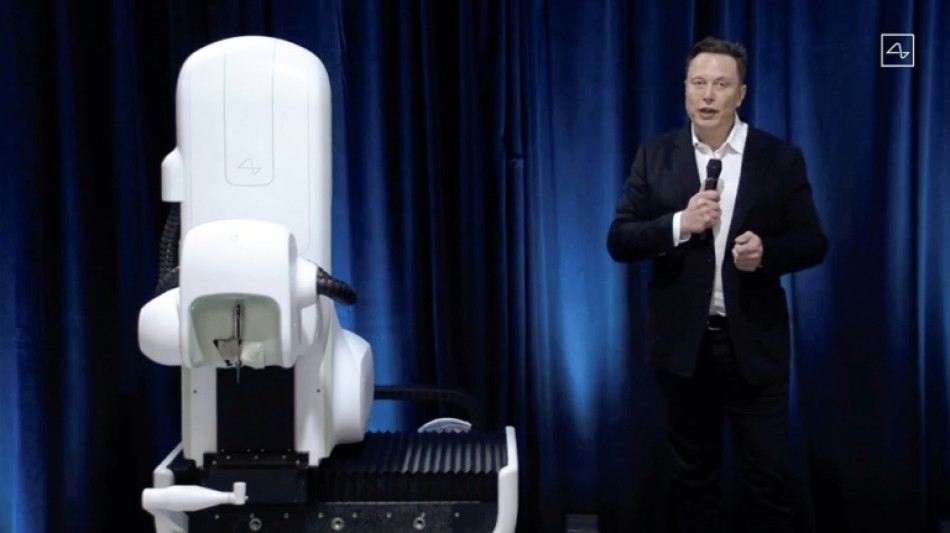
Neuralink shows quadriplegic playing chess with brain implant

Neuralink on Wednesday streamed a video of its first human patient playing computer chess with his mind and talking about the brain implant making that possible.
Noland Arbaugh, 29, who was left paralyzed from the shoulders down by a diving accident eight years ago, told of playing chess and the videogame "Civilization" as well as taking Japanese and French lessons by controlling a computer screen cursor with his brain.
"It's crazy, it really is. It's so cool," said Arbaugh, who joked of having telepathy thanks to Elon Musk's Neuralink startup.
Musk's neurotechnology company installed a brain implant in its first human test subject in January, with the billionaire head of Tesla and X touting it as a success.
Arbaugh said he was released from the hospital a day after the device was implanted in his brain, and that he had no cognitive impairment as a result.
"There is a lot of work to be done, but it has already changed my life," he said.
"I don't want people to think this is the end of the journey."
He told of starting out by thinking about moving the cursor and eventually the implant system mirrored his intent.
"The reason I got into it was because I wanted to be part of something that I feel is going to change the world," he said.
Arbaugh said he plans to dress up this Halloween as Marvel Comics X-Men character Charles Xavier, who is wheelchair-bound but possesses mental superpowers.
"I'm going to be Professor X," he said.
"I think that's pretty fitting... I'm basically telekinetic."
A Neuralink engineer in the video, which was posted on X and Reddit, promised more updates regarding the patient's progress.
"I knew they started doing this with human patients, but it's another level to actually see the person who has one in," one Reddit user commented.
"Really crazy, impressive and scary all at once."
Neuralink's technology works through a device about the size of five stacked coins that is placed inside the human brain through invasive surgery.
The startup, cofounded by Musk in 2016, aims to build direct communication channels between the brain and computers.
The ambition is to supercharge human capabilities, treat neurological disorders like ALS or Parkinson's, and maybe one day achieve a symbiotic relationship between humans and artificial intelligence.
Musk is hardly alone in trying to make advances in the field, which is officially known as brain-machine or brain-computer interface research.
A.Graziadei--PV
